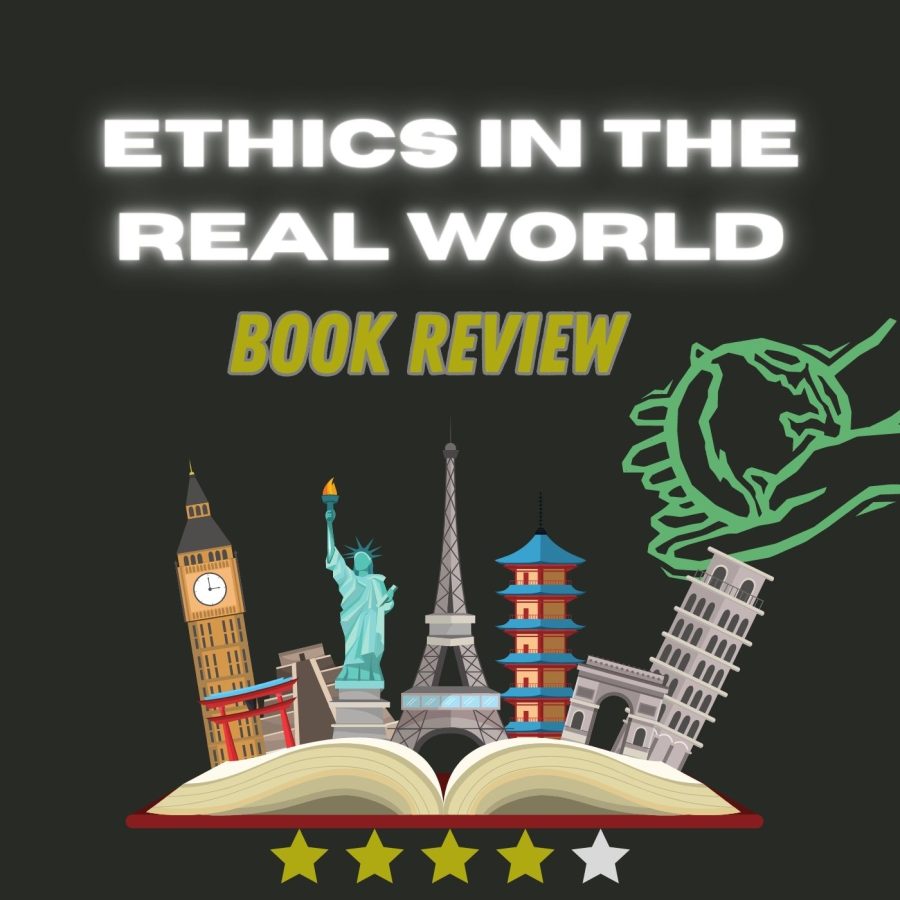Ethics In The Real World
A Peter Singer Book Review
April 1, 2023
Ethics In The Real World is a collection of philosophical works published by Princeton University and written by world-renowned philosopher Peter Singer. Singer addresses “things that matter” in the world through 82 brief essays.
I read Ethics In The Real World and ranked the four biggest sections out of five stars, according to the following criteria:
Resonation: Did the topics being discussed resonate with me? Did it capture my attention? Did it leave me thinking about the bigger idea being conveyed? Would I bring up his points in deeper conversations with friends?
Research: Did the sources Singer cites seem reliable? Does the research support what he is arguing? Does the research present bias to a specific argument or is it equally displayed?
Bingeworthy-ness: Would I go out of my way to re-read this section again or is it skippable?
“Big Questions”
Resonation: 5 stars
Research: 5 stars
Bingeworthy-ness: 5 stars
Overall 5/5 stars– This section is the first section of the book and easily captured my attention. It maxes out all three areas of my ranking criteria as Singers’ opinions are supported by strong evidence and scientific research.
The topics include his opinions on the hypocrisy and evolution of morality, what humans are to “the blue dot,” if there is an upcoming generation of the human race that we should make the last, etc.
“Big Questions” is a section where I could see the potential of being a hard pill to swallow for those who consider our existence black and white. Additionally, this section is also my most tabbed section of the book.
“Big Questions” also foreshadows later sections such as “Happiness” and “Living, Playing, Working” which both take on the concept of a human’s living will. “Big Questions” is the section of the book that challenges if anything humans do, say, or even act upon contributes to the longevity of both our planet and universe in the long run. Due to all of these things, “Big Questions” is easily my favorite binge-worthy section in Ethics In The Real World.
“Animals”
Resonation: 3 stars
Research: 5 stars
Bingeworthy-ness: 3 stars
Overall 4/5 stars- In “Animals,” Singer takes on the debate of veganism, the cultural bias of whaling, the quality of meat, humans vs. chimpanzees, etc. Singer also gets into the deeper political perspective of these topics towards the end of the book, in a section entitled “Politics.”
The research in this section is supported effectively as it presents strong research and analysis for both sides of each argument tackled; however, the only reason I could not give this section a full five stars is because it was not quite interesting to me. Animals are not a topic I usually gravitate towards, so it was no surprise that it took more than a couple of pages for me to start enjoying it. I would not say “Animals” is exactly binge-worthy, but I would definitely consider it educational.
“Beyond the Ethic of the Sanctity of Life”
Resonation: 5 stars
Research: 5 stars
Bingeworthy-ness: 4 stars
Overall: 4.5 stars- This section was one of the heaviest sections to read in the book, however, the research and evidence Singer put into this section make the resonation almost immediate. In “Beyond the Ethic of the Sanctity of Life,” Singer provides deep analysis and commentary on topics such as reproductive health, voluntary euthanasia, the legality behind dying, etc.
It coincides with a smaller section of the book entitled “Bioethics and Public Health” which debates private vs. public healthcare, touching on concepts like the “genetic supermarket” and “black market organs.” Nevertheless, “Beyond the Ethic of the Sanctity of Life” is brilliantly composed.I could not give it a full five stars because it was not a section I could see myself binging often.
“Global Governance”
Resonation: 3 stars
Research: 5 stars
Bingeworthy-ness: 2 stars
Overall: 4 stars- “Global Governance” talks about topics such as open diplomacy, honoring racists, America’s Founding Fathers, climate change, the oil crisis, etc. This section felt like the previous section, “Politics,” continued (which essentially, it is but with more emphasis on worldwide affairs). I found myself having to re-read essays, because I would begin to zone out or easily get distracted. Regardless, I still give this section a higher ranking because although I do not see myself frequently seeking out this section again, the research throughout “Global Governance” was strongly embedded to support Singer’s points which I can respect.
If you’re looking for something to read that will really make you think, I recommend Ethics In The Real World.

